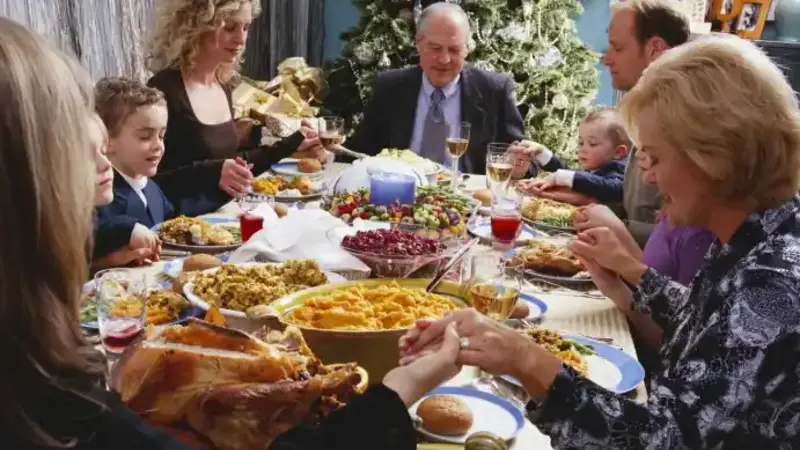Life has become such a race that there is almost no space for family, and at times, technology only makes people inside the house distant. When families first begin learning to love, empathize, and support, applying useful tips WhatUTalkingBoutFamily helps maintain strong and meaningful connections.
There are simple yet powerful ways of strengthening family relationships and creating an environment of peace in the home. Family time can be in the form of open communication, or even just meaningful activities like eating together or celebrating small milestones with each family member-all those things are important. In the end, it is a combination of wonderful things done by everyone in moderation that will build warm, loving, and supportive conditions for a family.
Make Time for Each Other
Family time is not an hour measurement but a quality measurement in moments spent together. Giving undivided attention while engaging in activities strengthens family bonds. This can be exercised in even the tenderest of bonds by turning on the smartphones or social media and simply cooking, walking, or playing games together.
Tip: Set any of your family members alone for 30 minutes a day to have his or her steady and focused time or just spend some deaf quiet time.
Open and Caring Communication
Good communication is what brings any family together. Misunderstandings and quarrels are common among family members where probably never spoken their opinions or feelings openly before others. Creating this atmosphere means enabling family members to feel safe and not judged in the expression of their feelings. Open communication isn’t merely the giving of words, but rather the greatest listening. It is about empathy: it is letting anyone talk uninterruptedly and without dismissing their feelings.
Tip: What will keep making the family benefit is the regular family checking-in meetings, sharing happenings and feelings among all family members.
Create and Follow Family Traditions

Family traditions are rituals that help solidify bonds, making everyone feel closer and creating lasting memories. These small traditions may include Friday movie nights, Sunday breakfasts, and family picnics done once a year. These all mark for everyone an exciting event to look forward to, and give children the feeling of connection to something not quite so large as themselves. Eventually, once the ritual becomes an activity, it will give added depth and joy to family life.
Tip: Initiate some simple family traditions that everyone can enjoy repeatedly.
Use a family calendar or command center
Use a Family Calendar or Command Center. Family planning becomes quite a hassle when you realize that all members have independent schedules. This could be in the form of a family calendar or command center physical board, or an application like Google Calendar that everyone should keep maintaining and updating. This way, miscommunication or misunderstanding about plans could not cause any of the important schedules or appointments to fall through the cracks.
Tip: Make it well-organized to follow schedules by assigning a color-coded entry for each member of the family in the calendar.
Incorporate Tech-Free Time
Members of the family get caught up in one or another of their glowing screens-the cellphone, tablet, or television so much that it becomes hard for each member to spend some time with the other. Certain tech-free hours or spaces at home would be important, for example, keeping phones off for family meals, or some 30 minutes before sleeping. Such acts not only allow for better communication but also enhance emotional bonding.
Tip: Designate at least an hour daily during which family members will be holed up in their rooms with their devices-not elevating even one glimpse of attention to each other.
Make the Chores Fun

It’s rare that anyone would enjoy household chores; however, making them a group activity or a fun game could turn the tables. Cleaning with music, giving time challenges, or staging contests will all motivate participation. This way, the chores will be done in a hurry while bonding the family.
Tips: If the chores are done, think of putting a reward system, such as some extra play time or a small treat.
Foster a Fun and Humorous Atmosphere
For households to be happy, laughter and fun must abound. Families talk mostly about jokes, stories shared, and dance-offs-pure fun that brings families closer and helps them stand together in a time of crisis. A sense of hilarity creates a non-serious environment, alters moods, and creates a beautiful space for the family.
Tip: Allocate every day to sharing jokes, humorous experiences, or fun things that happen with a family member.
Meet the Needs of Each Family Member
Each family member has personal needs, tastes, and emotional problems. When one knows the needs of family members and supports them, they build a strong family unit. It is well that now and again, a person should be checked on how they feel and what would appreciate or secure them.
Tip: One should create a routine for on-and-off one-on-one monthly conversations where every other person can freely express personal goals or struggles without fear of being judged.
Forgive and Forget
It’s just the way of families having squabbles and hiccups here and there. That’s very sure and completely natural. What counts is how much they can understand and move on. From there, families learn emotional maturity along with lasting bonds. Not letting go of bitterness creates distance through time and turns into tension.
Tip: When conflicts arise, encourage honest apologies and practice letting go to restore peace and harmony.
Build an Attitude of Thanksgiving
Thankfulness expressed daily enhances positivity and thanksgiving in a family. For instance, whenever a family dines together, everyone can mention what makes them feel thankful. Such an environment creates warmth that nurtures love and appreciation for every member.
Tip: Create a family thankfulness jar; everyone could put things they are thankful for on paper slips, which they would read on occasions.
Community Service: As One Stepped Into the Work
Family unity through community projects establishes empathy and that sense of social responsibility, and builds a family identity as a unit, a sense of belongingness. Such activities as local clean-up drives, food drives, and charity events would teach children about the true meaning of giving.
Tip: Set up a day during the month when your families and friends come together and dedicate it to a volunteer activity in an accessible community.
Method in Conflict Resolution
The couple adopts a way of listening to each other’s opinions and finding solutions together. At times, cooling off is all it takes before a discussion of a problem begins.
Tip: Set up family agreements on what is allowed in terms of open communication, e.g, no interruptions, no yelling, and everyone respected.
Use Technology to Connect
Such examples of using technology would be to separate them from one another, to have shared family group chats, a shared family calendar, or to include everyone in the video calls with family members who may be far away. The point is to balance screen time with quality time.
Tip: A family group could help in chatting about updates, photos, and schedule sharing.
Mindfulness Practice and Supporting Mental Wellness
Sometimes, there could be some tension in family relationships due to stress and anxiety. Adopt mindful safety, meditations, breathing exercises, or simple reflections. Say, for example, one household would have such mindful time for safety and relaxation practice, preferably with time within 5-10 minutes every week.
Tip: Let’s put this aside, if possible, for 5-10 minutes a week for all family members to touch base and experience calmness together.
Be an Example of Good Morality
Parents and elders act as the role models of youngsters in the family. Your actions represent kindness, honesty, responsibility, and emotional control. Exemplifying these characteristics every day does not mean you are never to show that you make mistakes and learn from them.
Tip: Patience, respect, and empathy must be placed at the forefront of your relationships.
In Conclusion
Family relationships are precious and require conscious effort. Application of all these tips under WhatUTalkingBoutFamily will improve communication, trust, and respect in the family. Very small acts or gestures, such as just spending time together, listening with intent to understand, and showing appreciation, can be extremely meaningful moments.
Continuously try to apply these techniques, cherish little victories, and introduce media-free moments now and then. These are step one towards the long phase of change. Repeatedly weave small, daily happenings to cement an atmosphere of love and harmony in the home: family meals, the practice of saying thank you, etc.
